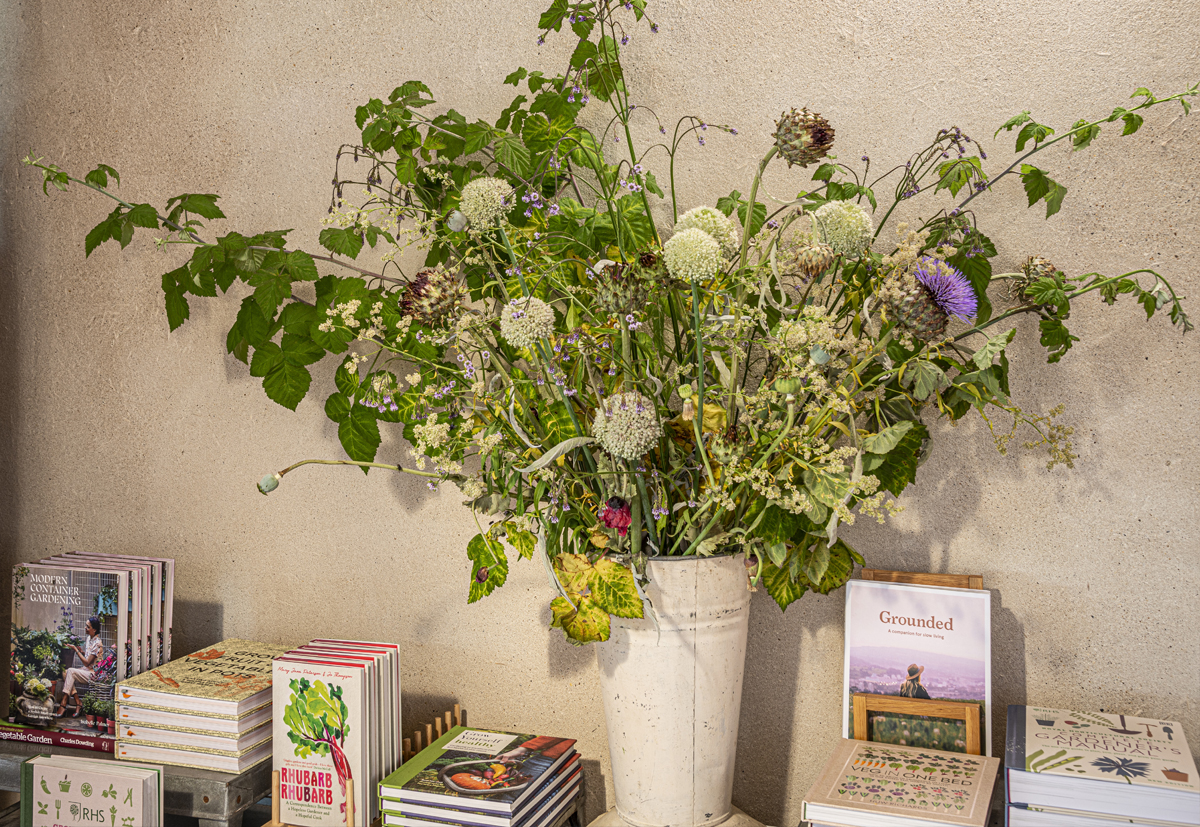
New Arakabe Finishes for Daylesford Organic
Arakabe means, literally, clay plaster and chopped straw. It has been one of the essential building materials in Japan since the seventeenth century. Earthen plasters, ceramics and the natural building techniques of Japan have always deeply influenced the work of the Clayworks founders, who travelled to the country earlier this century while researching for their book ‘Clay and Lime Renders, Plasters and Paints’.
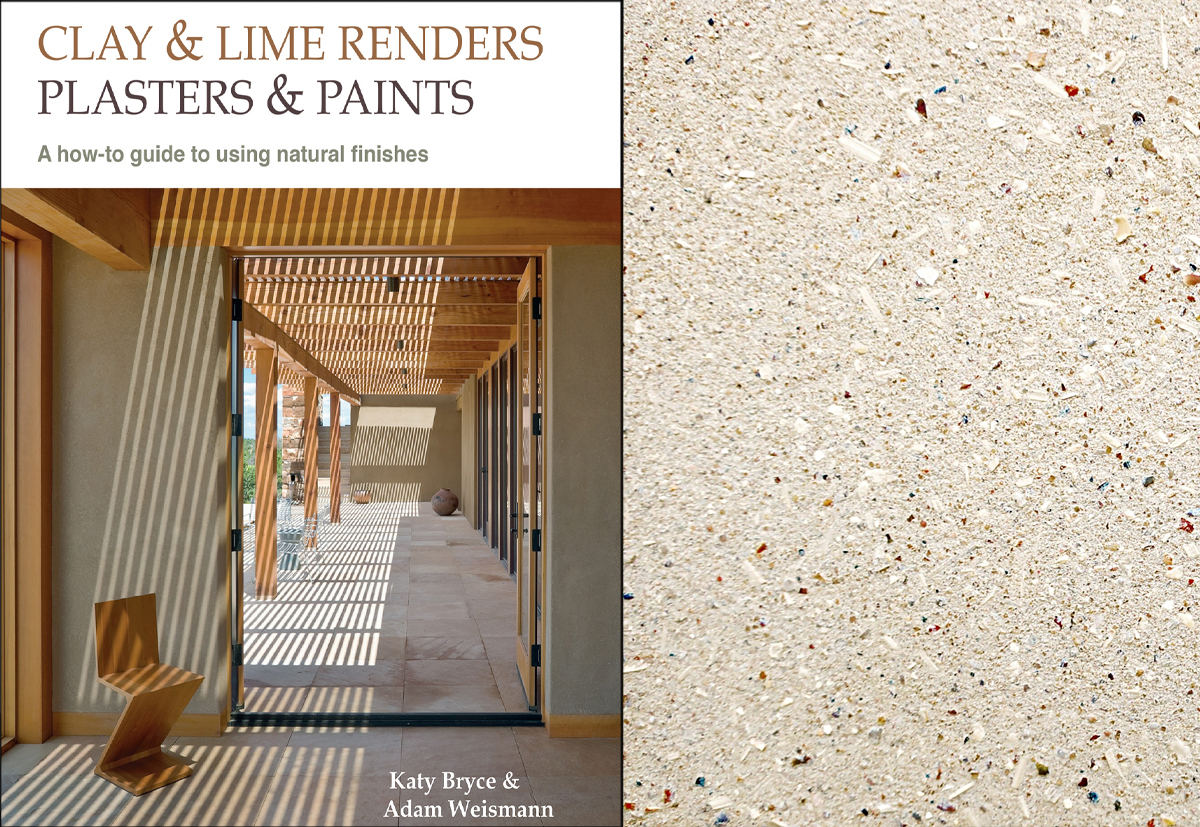
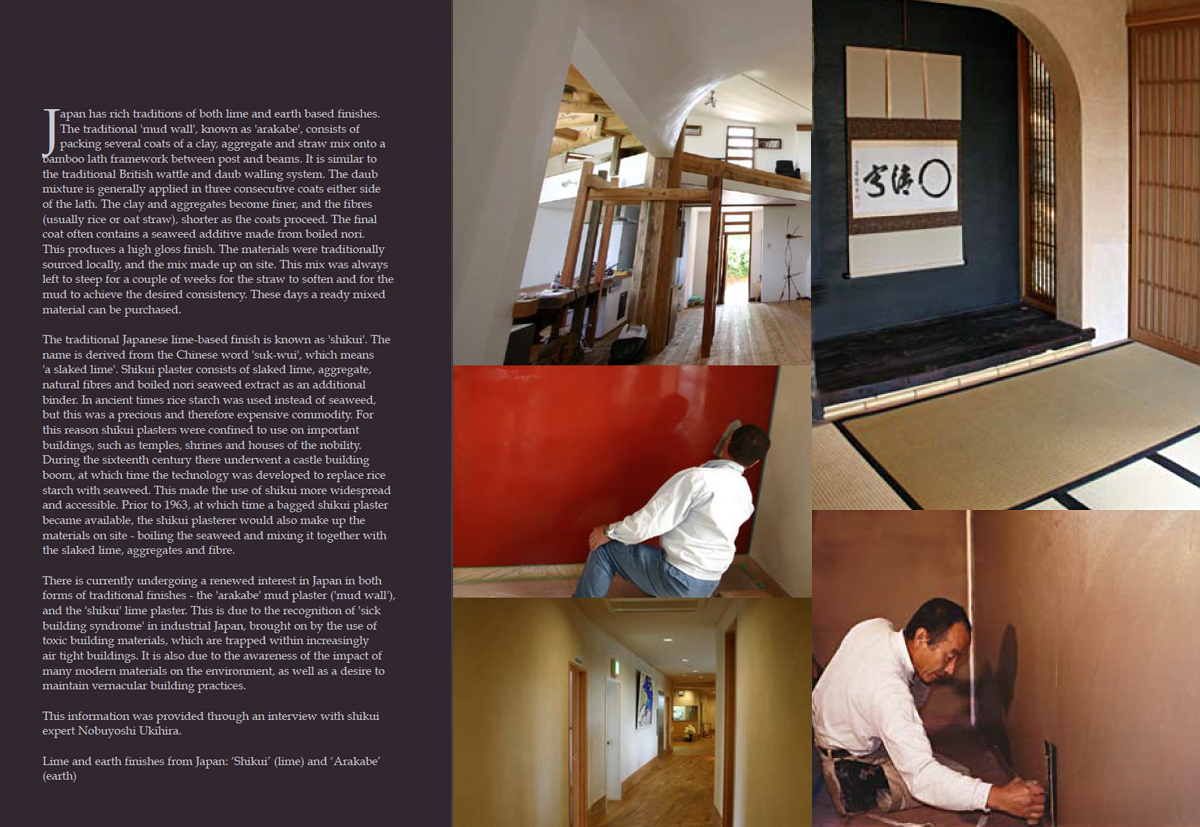
Japanese style revolves around a love and respect for nature and natural beauty and the use of clay with straw in it brings warmth and depth into a space, while the organic elements are deeply appreciated by Japanese culture. Straw can bring several performance benefits to clay, adding flexibility, additional binding strength and moisture resistance, but our contemporary Arakabe range focuses on the added texture, beauty and emotional connection with an additional raw material.
Straws, whether barley, wheat or hemp display an irregularity of nature and organic forms, introduce additional rustic simplicity to an interior surface finish. Straw is also one of the materials making the world a better place, protecting biodiversity and helping to capture carbon.
Clayworks launched its Arakabe Range at the same time as Walmer Yard was unveiled to the world. Renowned architect Peter Salter specified a charcoal black clay plaster with golden straw for the famous ‘yurts’ that sits atop the iconic London development. Salter, in his book Walmer Yard (2019), explains how the yurts were influenced by the dimpled and irregular shape of a Japanese tea ceremony bowl.
“Their interiors of chopped straw and black clay plaster follow once again a Japanese aesthetic of ‘roughness…beauty of the imperfect’. The use of chopped straw and clay in a range of earth colours … follows the patchwork quality of traditional interiors of Japanese farmhouses in which light reflection dictates the colour of the plasters.”
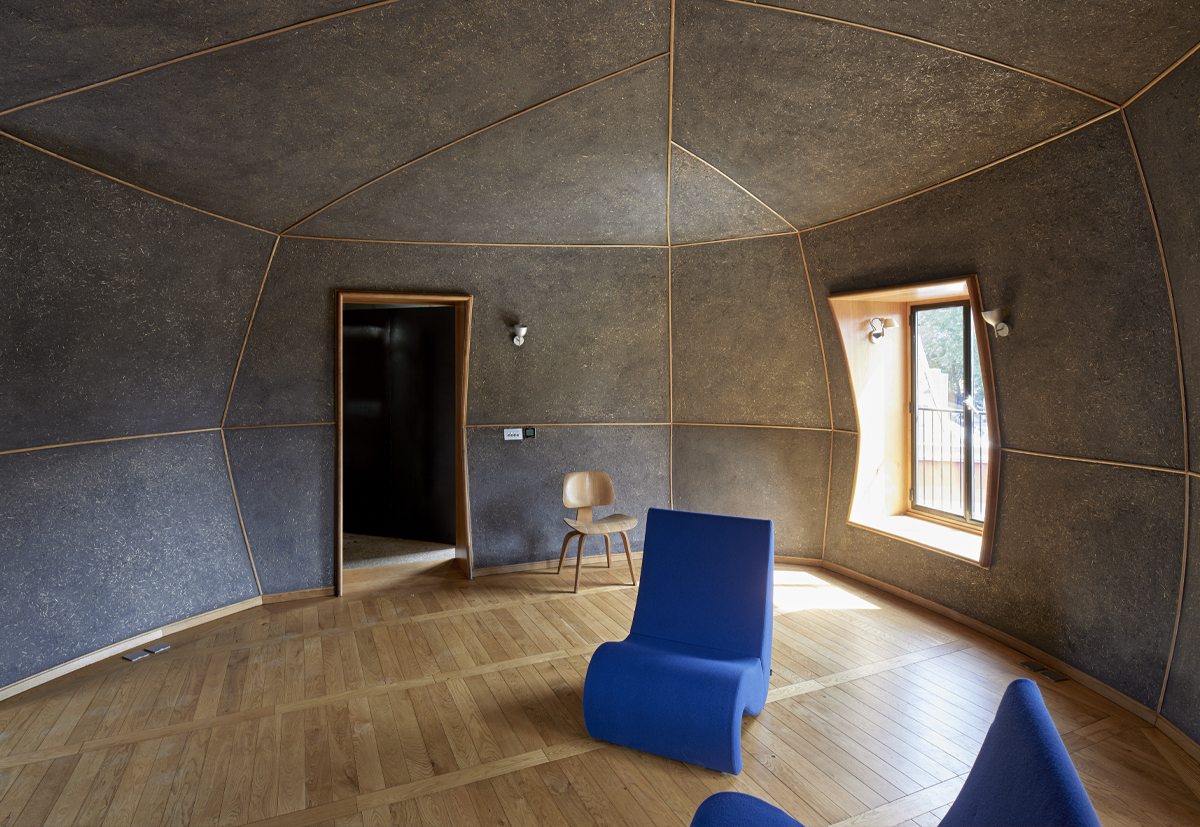
The interplay of natural light and clay is exhilarating at times planetarium like. The way the material talks to the light is unique as the clay absorbs light, while the straw glows. Every hour you will see a different dialogue.
Since then, Clayworks have worked with different colours of straws, different weights and mixes with other aggregates to create truly unique finishes for interiors around the world including an equine inspired restaurant in Dubai and most recently the new Daylesford Organic Shop in Gloucestershire where the concept of Arakabe was expanded to include small, woody roots from the organic gardens.
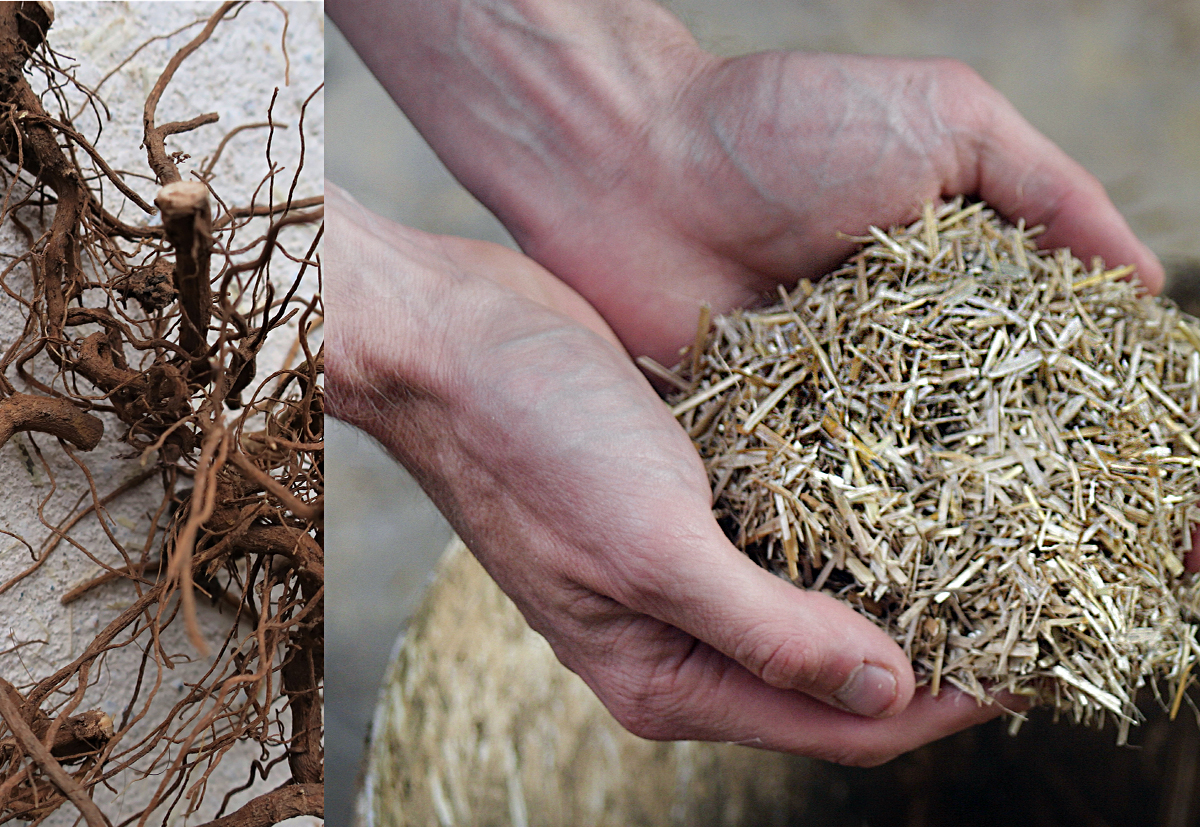
At our headquarters in Cornwall, we experimented with the woody roots and different clay mixes, creating new finishing materials that can incorporate local, organic and abundant resources. For Daylesford, they were all found in the grounds of the building and the concept, designed by Daylesford’s in-house design team, represents a new and exciting way to connect interiors with the earth and to work with nature. The new experiential retail space is dedicated to sustainable gardening, organic growing and outdoor time. The objective of the build was to create minimal impact by remodelling an old agricultural barn, working with local craftsmen, adopting traditional techniques and using locally available materials where possible.
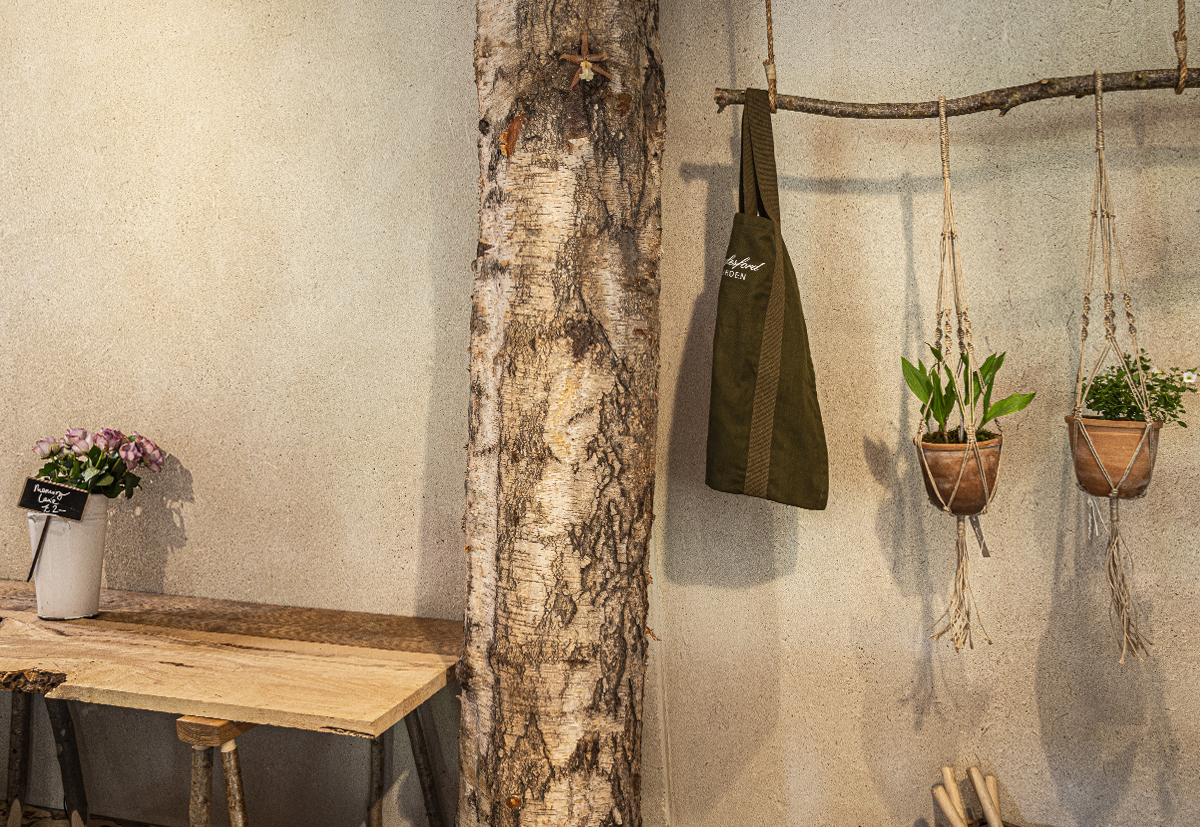
The design concept for the restoration embraces the surrounding environment used wood and stone where possible and is wholly inspired by nature.
The theme is continued throughout: the door handles and clothes hooks are all made from fallen wood from the estate and all fixtures use natural material and FSC certified wood.
